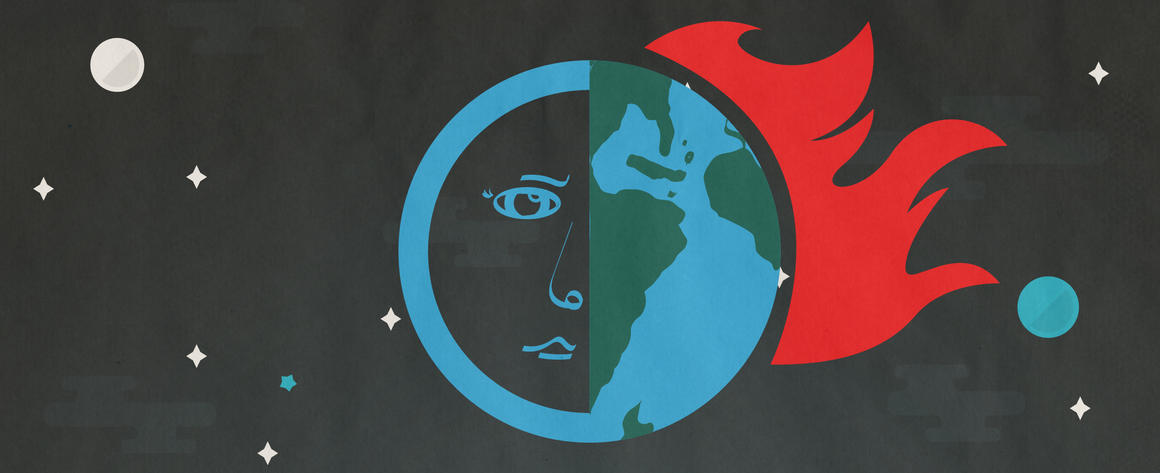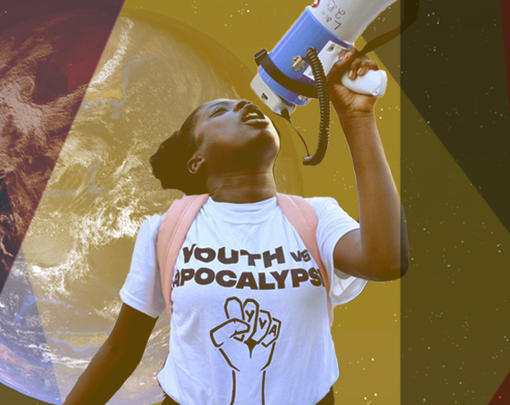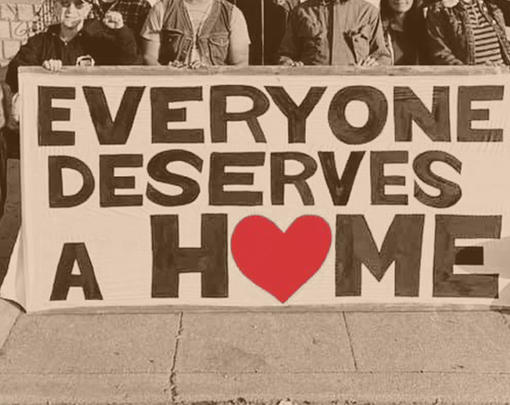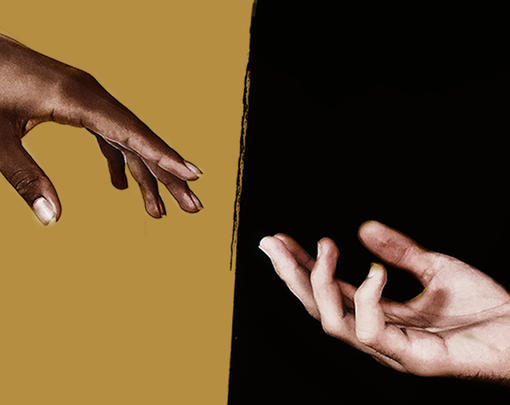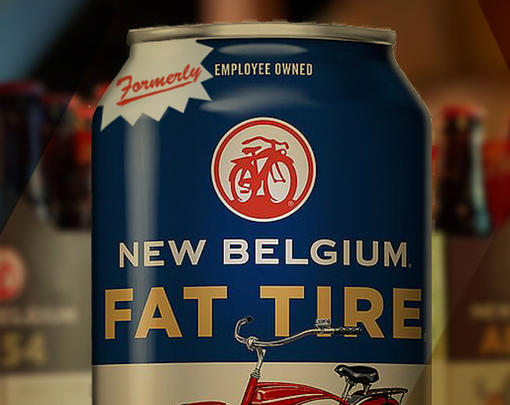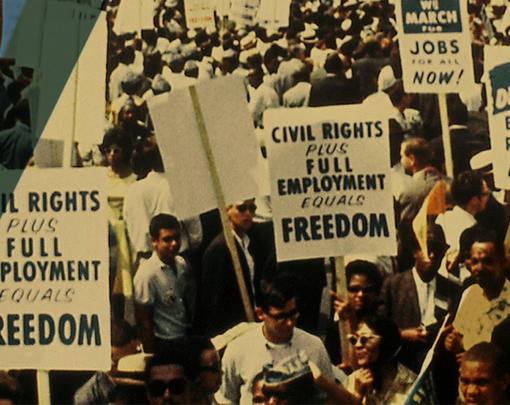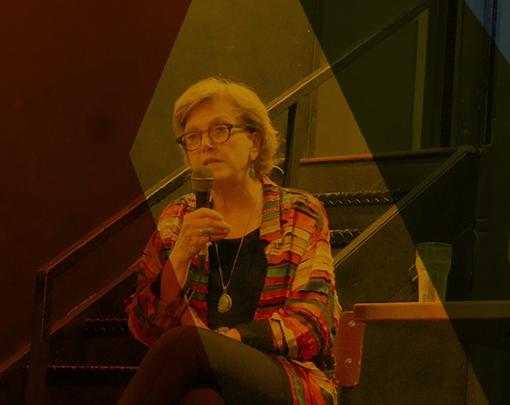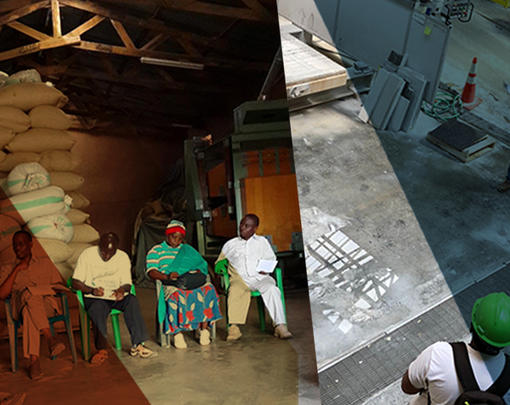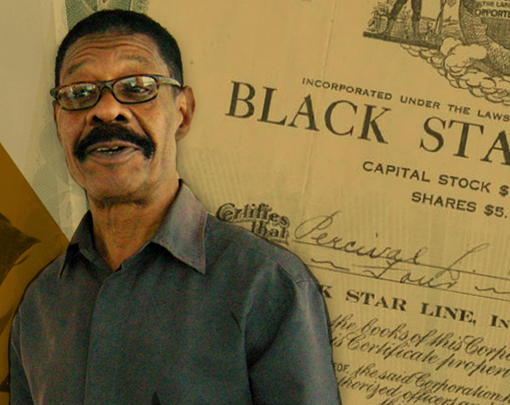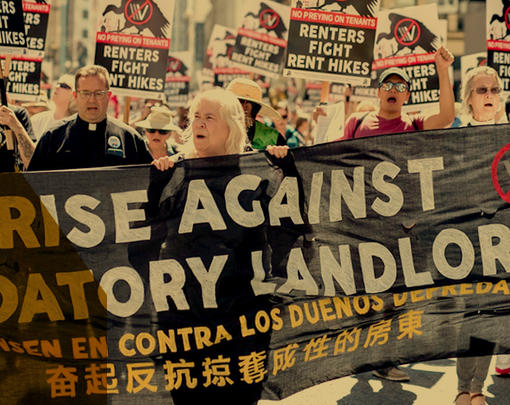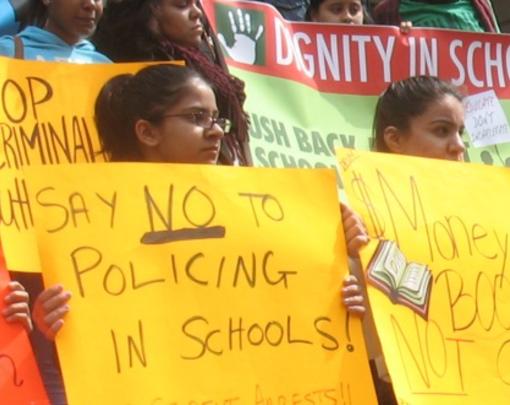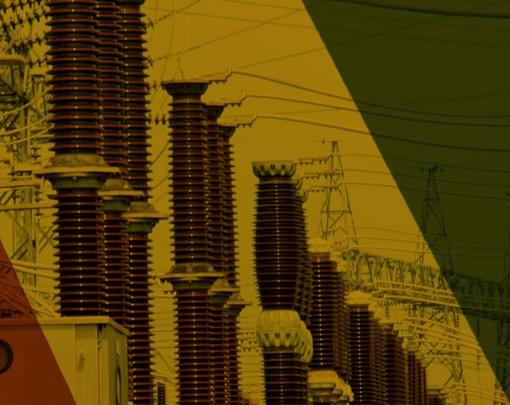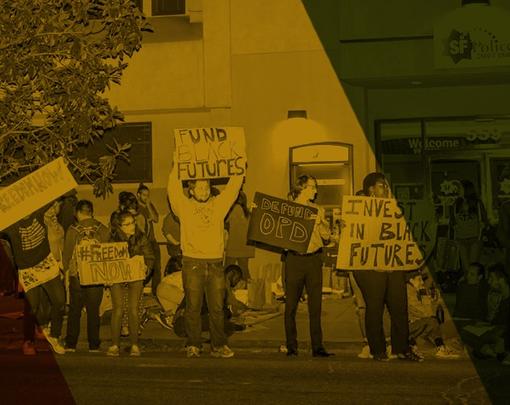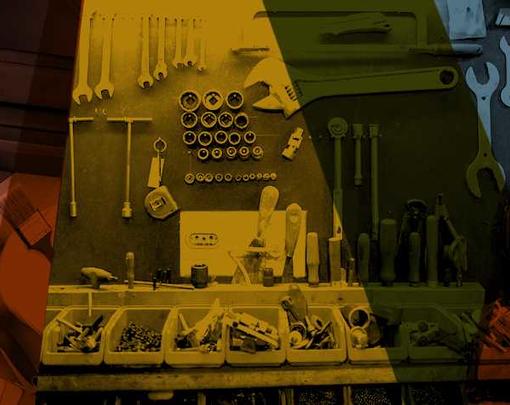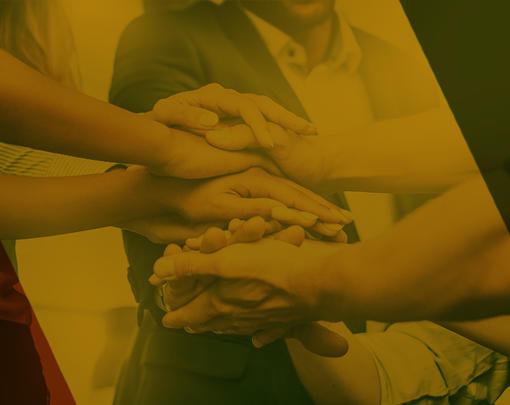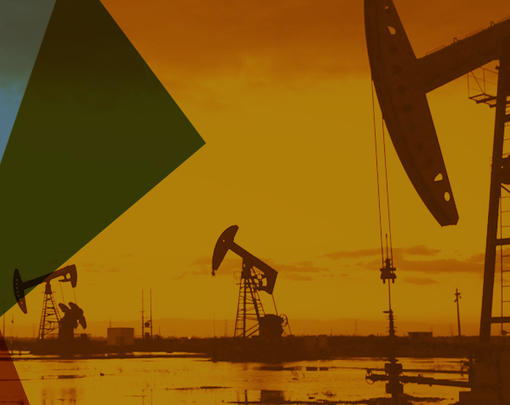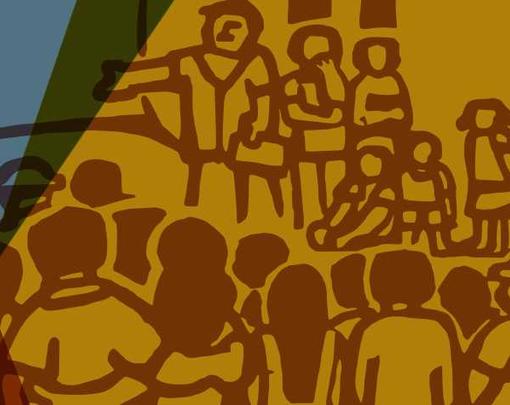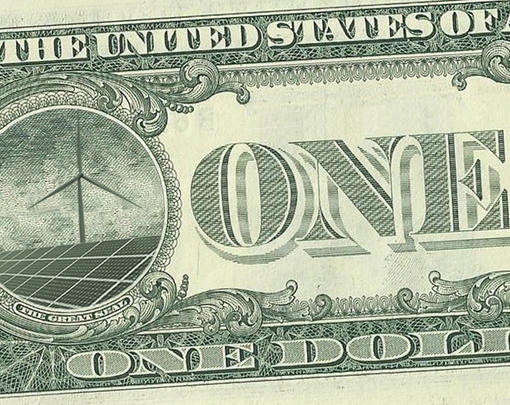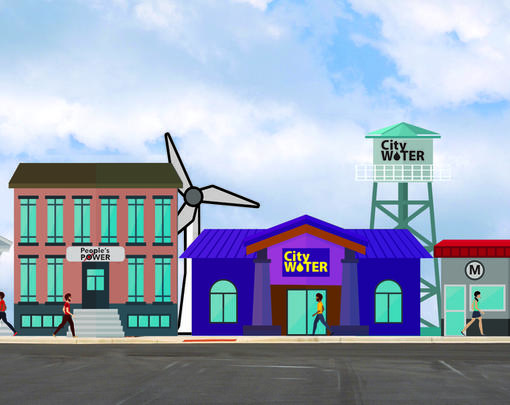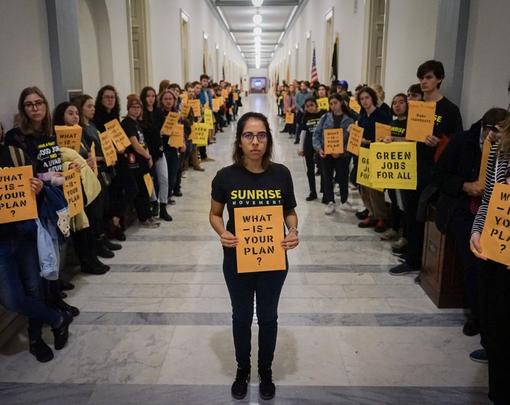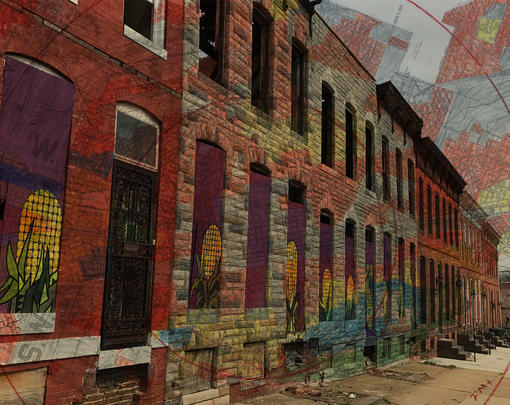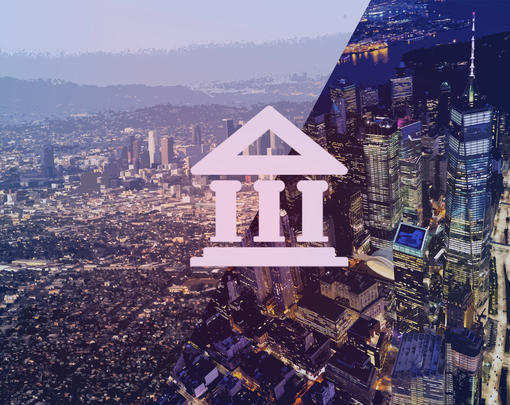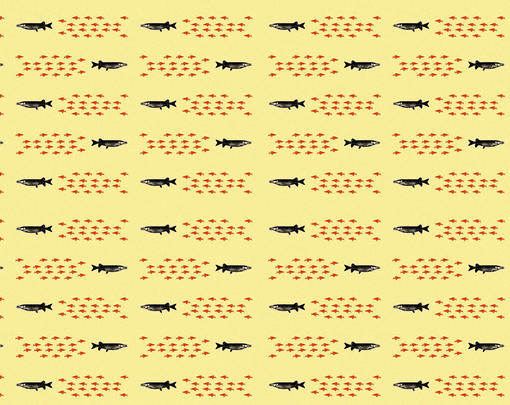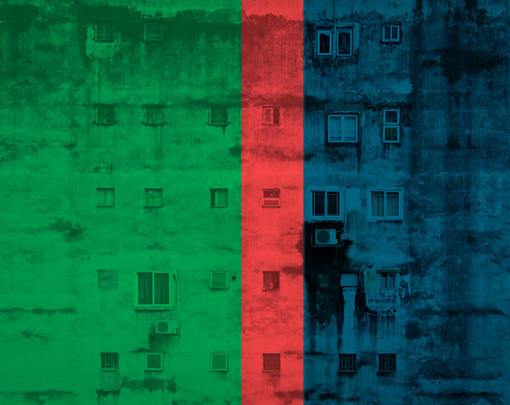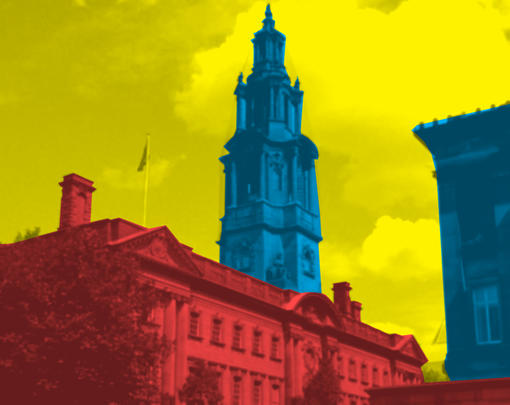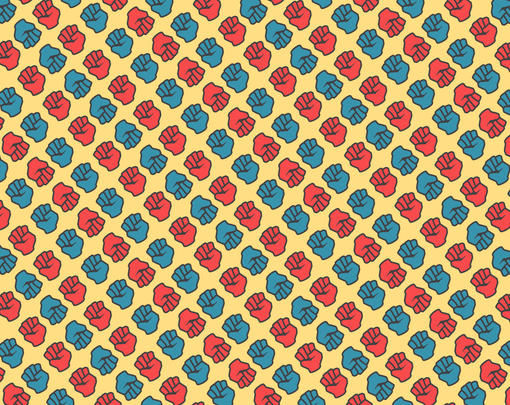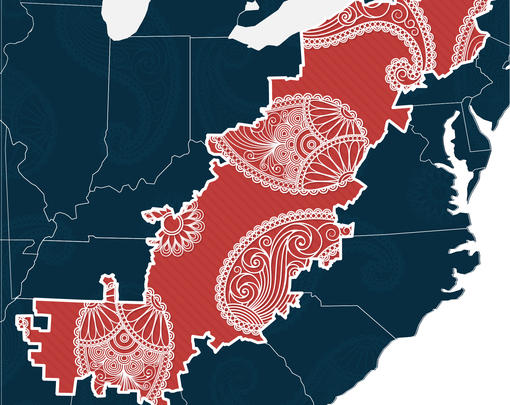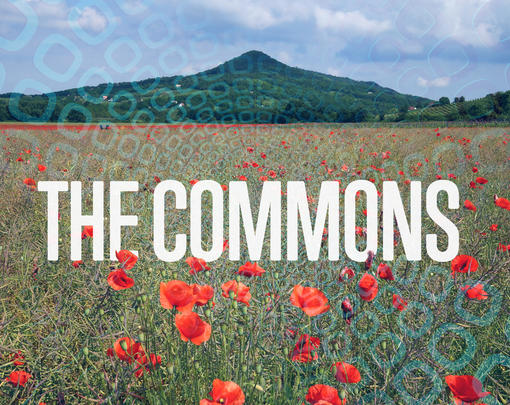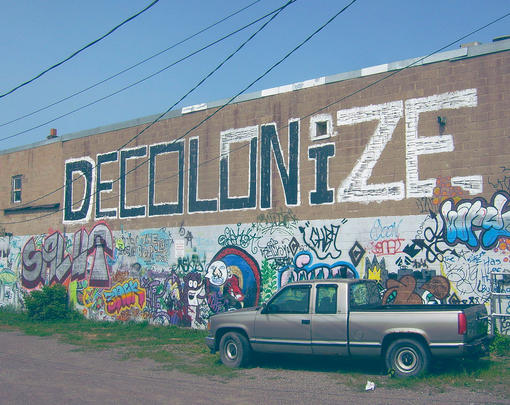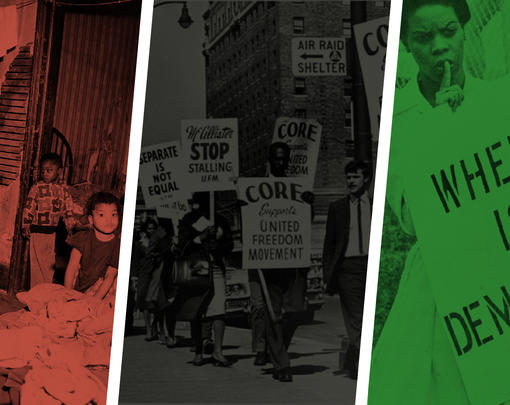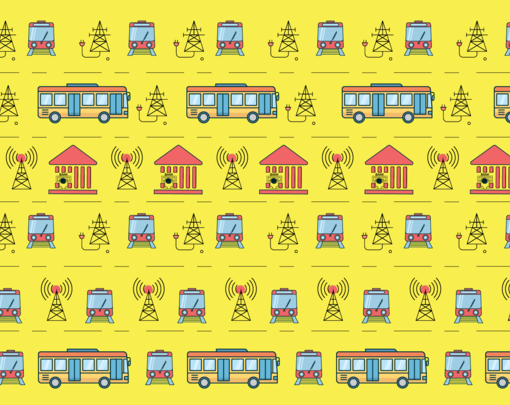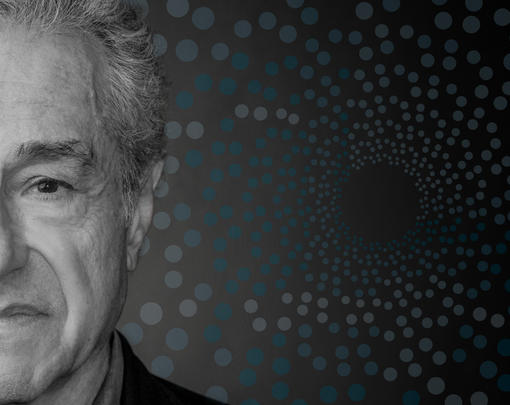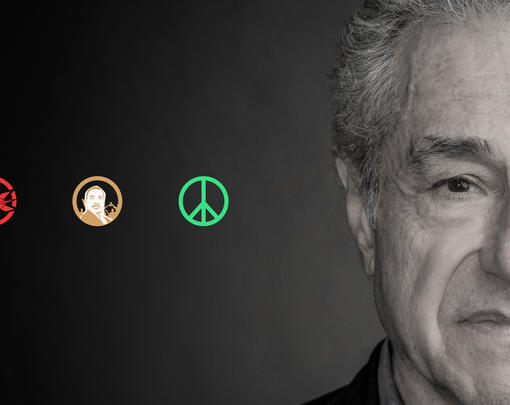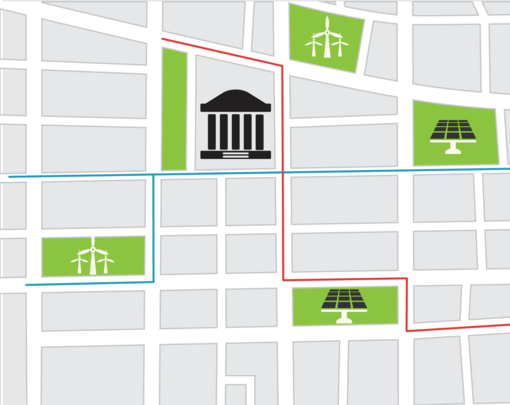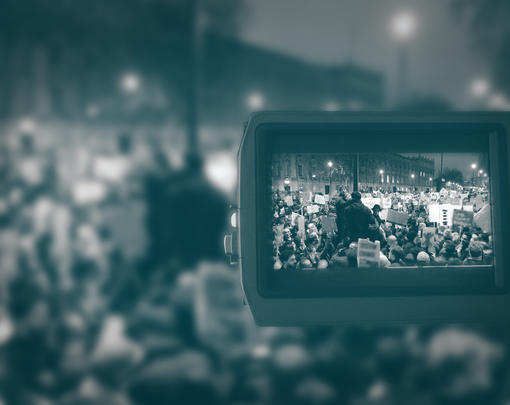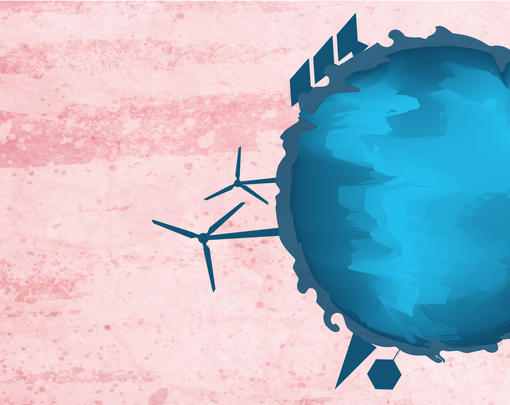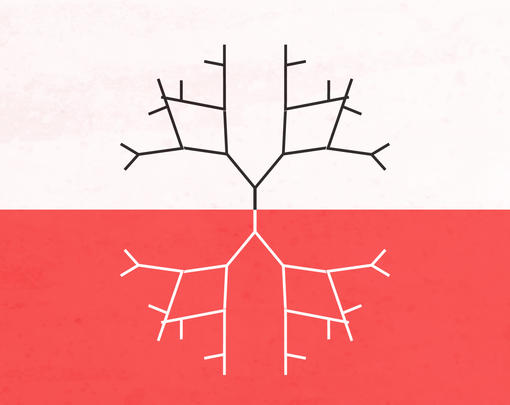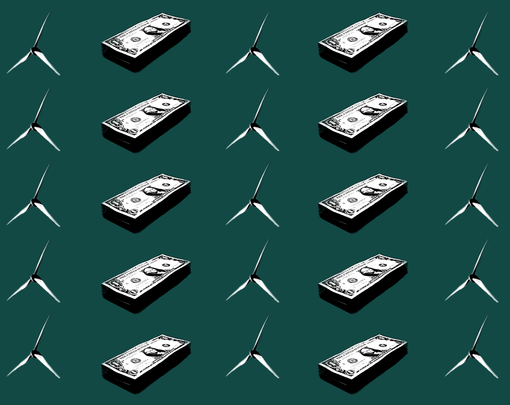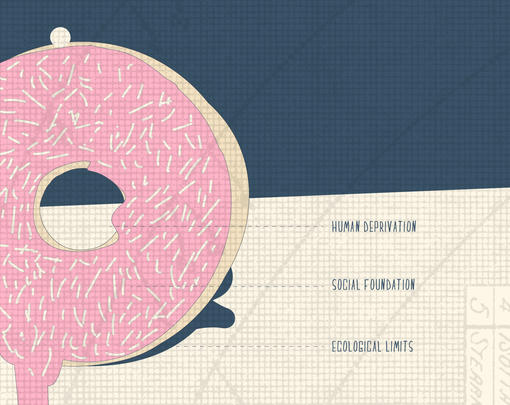This week, Adam sits down with Jacqueline Patterson, the Director of the NAACP’s Climate Justice Program, and Basav Sen, the Climate Justice Project Director at the Institute for Policy Studies to discuss the intersection of ongoing environmental crises and systemic bias along the lines of race, gender, and social class.
Subscribe to the Next System Podcast via iTunes, Soundcloud, Google Play, Stitcher Radio, or RSS.
A quick note before we begin our conversation. This podcast was recorded soon after Hurricane Harvey made landfall off the coast of Texas and just a few weeks before Hurricane Irma made landfall in Florida. The Next System Project encourages those who are able to assist relief efforts, consider doing so with the locally-based organizations like the Texas Organizing Project, the New Florida Majority, and other organizations that are very much on the frontlines of climate change.
Adam Simpson: Welcome back to the Next System podcast. I’m Adam Simpson. Today we’re talking about climate justice, and joining us today to talk about these things are Jacqueline Patterson, director of the NAACP’s environment and climate justice program, and Mr. Basav Sen, the climate justice project director at the Institute of Policy Studies. Jacqui and Basav, thank you for joining me today.
Basav Sen: Thank you.
Jacqueline Patterson: It’s a pleasure to be here.
Adam Simpson: Absolutely. Just by way of introduction, just a little bit of background about you both. Jacqui, you’re the coordinator and co-founder of Women of Color United, formerly senior women’s rights policy analyst for ActionAid, where you worked on integrating a women’s rights lens for the issue of food rights, macroeconomics, and climate change, as well as the intersection of violence against women and HIV/AIDS. Basav, previously you worked for the United Food and Commercial workers as a strategic corporate campaign researcher. You have experience organization campaigns on the world bank and international monetary fund, as well as being active in the local struggle for climate justice here in Washington DC. I’m really excited about the conversation that we’re going to have today. I think the first question though, and I’m sure maybe you get this a lot in your personal lives is climate justice, what does that mean to you? When someone says climate justice, that doesn’t necessarily mean social justice, doesn’t necessarily mean climate change. How do you explain your work, climate justice, to your colleagues, your peers, your friends and family?
Basav Sen: Climate justice is a way of viewing the crisis of climate change as a crisis of social and economic justice because climate change, like many of the ills in our world does not act equally. It does not impact everyone equally. In fact, it impacts people along the lines of familiar dividing lines, familiar lines of inequality, and so you have people of color, low income people, people with disabilities, people in the global south, it’s everyone who is the most marginalized and most impacted by all forms of discrimination and oppression. They’re also the very same people who are the most impacted by climate change, and bringing that lens to the work of advancing climate change, that’s how I view climate justice in a few words.
Adam Simpson: Jacqui, in your mind, how does climate justice diverge and intersect with what we might call environmentalism? How does your work intersect with what others in that field might be doing?
Jacqueline Patterson: Yeah. One example that has really been a discussion recently has been around the transition to clean energy, and so for a lot of the traditional environmental organizations or in the vein of traditional environmentalism, the idea might be to get as much carbon and greenhouse gas emissions out of the air as possible, and so the aim is to move away from fossil fuel based energy production by any means necessary, and so the transition to clean energy could be utility owned clean energy or it can be controlled by utilities, whereas when we talk about from a climate justice movement, we see it directly intersection with the economic justice lens, and we see that as we make this transition, it needs to be to community owned solar and community owned energy infrastructure.
Adam Simpson: Sure.
Jacqueline Patterson: That’s one example. Then just generally also how the intersectional lens that Basav talked about was in terms of the ways that for example are the intersection with the fossil fuel energy companies and the amount of profits that they amass and how they use it, those profits, to push back against everything from clean air to clean energy policies. That marriage between money and politics is a key factor in how we’ve gotten to where we are in terms of being on this path to catastrophic climate change, and so when we see that transition that we need to make, we also see it in terms of looking at power and where power is placed and where that power has resulted in the proliferation of fossil fuel energy and other polluting practices. As we move towards climate justice, we really are being intentional about shifting power and really putting power in the hands of the people so the decision making, you really take back our democracy.
Adam Simpson: Now that we have kind of an understanding of what climate justice means, I’m curious and just sidebar, feel free to make this very much a conversation between you two rather an interview, but as you like, as you like. I did want to ask you how did you come to get this passion about climate justice in particular and spend a lot of your time, your intellectual efforts and things like that on this issue? What drew you into this work?
Basav Sen: Well, there are a range of things that brought me to this, but first let me talk about the most micro and personal level divisions. I’m the proud dad of a little girl who just turned 10 two weeks ago, and thinking about her future was a big driver for me to to come to work in the field of climate change and climate justice. Also, I’m a native of this little corner of Eastern India bordering Bangladesh, and our part of the world is a huge river delta, very low lying.
Even before sea level rise, the tides would come up the river to the city I was born in and grew up in, and I have seen maps of what will happen with sea level rise as global temperatures rise, and one of the first parts of the world to disappear will be that river delta that is my homeland, my little corner of Eastern India and probably two thirds of the country of Bangladesh. That will mean my homeland disappearing, and it’ll mean a lot of my culture because our songs, our folklore, our fairy tales, they’re all based on being a land of rivers, so for me the issue of climate change and climate justice is very deeply personal.
Jacqueline Patterson: Yeah. Similarly, with seeing some of the impacts and whether it’s in my own life or observed impacts is certainly a driving force, and the work that I was doing and I continue to do on gender justice, seeing the many, many ways that women around the world are disproportionately impacted by climate change was certainly an entry point for me in terms of doing the women’s rights work, so whether it’s girls who are having to walk further to get water in places like South Africa or other nations in sub Saharan Africa where the duty of the girls is to go and get the water for the household, and so we’re having girls who are having to walk further, which not only takes away from their ability to go to school because in some cases, people have doubled from five kilometers to 10 kilometers having to walk every day back and forth to get this water, and so in a number of places, that meant that by the time the girls got back, they don’t have time to go to school, and so that really interfering with their education and their future prospects.
Then also when you intersect it with the violence against women that happens, whether it’s in the aftermath of disaster or as a result of not being able to fulfill the traditional roles like agriculture in the home that results in domestic violence, there are many, many ways that there’s this intersection. That was my entry point, but now being in the work and really looking, seeing this deeper analysis around climate justice that in some ways, addressing climate change from a root cause perspective is addressing many of the inequities and injustices in the world because in order to be able to address climate change, we have to address racism. In order to address climate change, we have to address patriarchy. In order to address climate change, we have to address the classism and so forth because those are the very systems that put us into where we are. In some ways, it’s so intersectional with all these other systems that we need to change that for me, it’s not just working on climate. It’s working on a social justice and systems change then in order to uplift human rights.
Adam Simpson: It actually leads directly to my next question. I wanted to ask your perspective on whether you view when we think about racism and sexism and inequality as drivers, should we think of these as drivers of environmental destruction, or should we think about environmental destruction as drivers of racism and sexism and inequality, or is it a little bit of both or is there a nuance there? I just wanted your perspective on that.
Jacqueline Patterson: I would say there is … I wouldn’t say necessarily a little bit of both as much as that the reckless extraction of natural resources and the exploitation of natural resources and also human resources, whether it’s commoditization of labor in a way that in terms of seeing people as labor as opposed to people who work, and so all of that is intersectional. It’s not so much, so the results of that in terms of the climate, the damages to the climate are also alongside the damages to the rights of workers, to the rights of communities, to the rights of women, and it becomes a spiraling effect because each affects the other, but it’s all based on the system of extraction, of exploitation, of domination.
Adam Simpson: Right. Do you have any perspective on this chicken or egg dilemma?
Basav Sen: Absolutely. I would fully agree with Jacqui, and the one kind of thing I would elaborate on is the underlying mindset that allows our present day political and economic bar structure to keep on extracting and to keep on burning this extremely dangerous stuff and endangering the lives of so many people is the devaluing of human lives and particularly of some human lives, so people of color, women, anyone whose lives are regarded as less than, if you see this system of extraction impacting them disproportionately, that is not of concern to the powers that be precisely because their lives are devalued.
Adam Simpson: My next question was about the role of democracy, as you pointed out earlier in all of this, Jacqui, but as you were talking, I’m wondering. When most people think of democracy, they think about voting on politics, and when I think about environmental destruction, I think about the taxonomy actually of our economy in that particularly black and brown people, women and indigenous people and things like this are taxonomized into a certain subset of our economy, and the same thing with class. How do you view, you mentioned community control for instance, Jacqui, but how do you conceptualize economic democracy and how do that play a role in more egalitarian outcomes in terms of climate?
Jacqueline Patterson: Yeah. So much there.
Adam Simpson: Sorry.
Jacqueline Patterson: Yeah, that’s okay. I would say that just taking this issue of energy again and knowing that for example, African Americans, 68% of African Americans on average over the years have lived within 30 miles of a coal fired power plant, and that means that we’re experiencing the toxins from the coal fire power plant, which results in everything from exacerbation of asthma, so our kids are three to five times more likely to enter the hospital from an asthma attack and two to three times more likely to die of an asthma attack. We as adults are more likely to die of lung disease, but less likely to smoke. We see that extreme kind of impacts in terms of burdens, and I can name many, many more, but then at the same time when you look at the energy sector, we’re spending 41 billion dollars on our energy bills every year, on our energy uses every year.
We only have 1.1% of the energy jobs, and we have less than .1% of the revenue from the energy sector, so we’re getting all of the negative impacts of the energy economy, but none of the gains of the energy economy in terms of economic well-being. At the same time, even that 1.1% versus .1% means that even the jobs that we have are on the very lowest rungs of the ladder, of the energy sector in terms of jobs and seniority in jobs, which means that we’re not in the decision making place in terms of the energy companies and so forth, so not only is it an issue around wealth and income, but it’s also an issue around energy democracy in terms of who’s making decisions around energy.
Then on top of that, that 41 billion dollars is being extracted from our communities. It gets sent back in the communities in pollution because of the burning fossil fuels, and at the same time, it’s also being used when those companies use that money to pay to push back against clean air and clean air regulations when they’re paying lobbyists to do that or to push back against clean energy. Then companies are also paying membership and paying for a seat at the table at ALEC, which means that money is also going to push forward on school privatization, to push forward on water privatization, to push forward on policies like stand your ground policies and prison privatization.
Then we see all of these other impacts, and again, it’s from our 41 billion dollars that we’re putting forward just in that one sector alone. All of that really becomes completely intersectional with this kind of climate justice conversation and what it means to make a transition so that it’s not only wealth building and so forth, but it also is changing our democracy because of that unholy marriage between money and politics that’s happening to our detriment as it stands. Hopefully that kind of gets to your question.
Adam Simpson: Basav, did you have anything you wanted to say about kind of an egalitarian economy?
Basav Sen: Not very much to add to what Jacqui said, which was brilliant. One term I’ve been using some of late is legalized bribery, which we’re seeing more and more of.
Adam Simpson: Sure. Now I want to turn to kind of how we think of outcomes. Basav, in particular reading your work, phrasing this delicately, I get a sense that human well-being is very much at the center of your work when we talk about climate justice. I don’t mean to say that the environment comes second. I don’t think that’s fair, but it seems to me when I’m reading your work and the way you’re talking about greening the economy, it’s almost like this is an intervention point toward improving social outcomes and economic outcomes, and I was hoping you might elaborate on that. In your work on the greening the economy, is this an intervention point for you? Is that fair, or would you push back on that?
Basav Sen: I think that’s a good way to describe it. As Jacqui pointed out earlier, we have systems in place that enabled climate change and other forms of environmental destruction to occur, and those same systems have systematically marginalized and impoverished people and particular groups of people. If we are to design effective solutions to the problem of climate change, we must get at those systemic roots, which would inevitably mean restructuring our economy and restructuring our society to get rid of fundamental inequalities because you cannot just change your technologies. You cannot just do a technical fix to get out of the hole we are in right now. In a way, addressing climate change effectively inevitably also means challenging deep rooted social and economic inequalities.
Adam Simpson: I think we may have touched on this, but I wanted to ask you explicitly, Jacqui. I’ve heard you refer to climate change as a multiplier of injustice. Could you elaborate on what you mean by that?
Jacqueline Patterson: Sure. An example would be in a situation like in a post Hurricane Katrina situation, as you know they did all this levee fortification in the various places in Louisiana, but in seven years later when Hurricane Isaac came through in 2012, Plaquemines Parish was completely inundated once again, just as it was at Katrina and also in the BP oil disaster. The question was asked to Senator Mary Landrieu why it was that those levees weren’t fortified there at the Plaquemines Parish like the other and all this whole levee fortification had been happening for the last seven years, and she said she asked the group of engineers the same question, and they said that they use a formula to decide which levees are prioritized for fortification, and the formula is to apply points to each levee based on what the economic impact would be if the levee was overtaken. That is this kind of institutionalized, it’s institutionalizing that the people who are the most vulnerable are going to be least prioritized for protection, the people who need the protection the very most.
The increase in the frequency and severity of extreme weather events means that again, the vulnerabilities of those communities are … They’re made even more vulnerable. As their stuff is being taken away, lives are being taken away obviously, and they don’t necessarily have the cushion to be able to come back like other folks are able to come back, whether it’s because of lack of insurance or poor housing stock or whatever. That’s an example.
Adam Simpson: I want to start thinking about a theory of change, like when we think about how to change these things, a lot of people will focus on the federal government. However, in 2017, I get a sense that many people are not focusing on the federal government when they’re thinking about a theory of change, regardless of whether we’re talking about withdrawal from the Paris Climate Accords, deregulatory measures, et cetera, et cetera, I think I’ve seen both of you talk through kind of the benefit of focusing on local efforts at the state and even the city levels. What in your mind is the benefit of kind of these campaigns? Because I get a sense that when people think about national politics, it’s very much a winner take all mentality, like if we don’t have the presidency or congress or what have you, we’re doomed. What in your mind is the advantage of focusing climate justice movements at the state and local level politics?
Basav Sen: Well, there are two clear advantages. One is that state and especially local government are less influenced. Not, I would say … Not completely independent of, but relatively speaking, less influenced by big corporations as the federal government. There can actually be a little more accountability. There are dishonorable exceptions, but … So that gives you one advantage. Another is that surprisingly, if you look at what drives greenhouse gas emissions and what drives pollutants in the United States, the control of a lot of those sources actually rests with state and local government. For example, a big source of pollutants and greenhouse gases is the transportation sector, and transportation planning and building public transit and redesigning our communities for less auto dependence. All of those are local government functions, so cities can play a huge role in making our transportation system more just, and that would both mean reducing pollutants and greenhouse gases and environmental impacts and making affordable public transit accessible to low income communities, communities of color.
Adam Simpson: Did you have anything you wanted to add about local organizing, the benefit there?
Jacqueline Patterson: Just that, well, the one thing I would add is that having conversations at the local level, it increases both relevance and resonance, I think, for folks because people are, when we talk about the mercury and air toxics rule under the clear air act or we talk about the clean air act in general, people, the notion of that actually having impact at the local level I think often kind of gets lost and people aren’t going to necessarily be activists around that knowing, thinking, being confident that federal policy is going to affect locally.
When there was a conversation in Chicago around having a local ordinance on clean air and it focused on the Fisk plant and the Crawford plant, and Harvard School of Public Health came in and said, “These are the pollutants that come from these plants and these are the amount of asthma deaths and hospitalizations that we’re attributing to these plants,” having that conversation locally, that really pushed folks over the age in terms of passing a local ordinance there that was more stringent than the state policy even because of that real relevance and the fact that they knew that if they pass this ordinance then literally right afterwards, then they would be able to breathe cleaner air. They would not have to take their kids to the hospital as much for asthma attacks and so forth. They really saw the immediacy and the relevancy at that level and felt like they actually had power to influence that because their votes for a local ordinance felt much more powerful than voting for something where they’re going to be one of millions of votes out there. That’s one of the things that we found.
Adam Simpson: Absolutely. Recently, I was having a conversation with someone at another environmental organization, and we were talking about the movement against the Dakota Access Pipeline, and also the Equator Principles. Two very different kind of ways of thinking about how we respond to environmental degradation. On the one hand, the Dakota Access Pipeline, it was a campaign against one particular pipeline that really sent a message to a lot of different banks and a lot of different companies. On the other hand, the Equator Principles, it was a very broad thing, and we were trying to get people to come and sign onto these things. I guess I’m wondering, he phrased it in a way that project oriented as the Dakota Access Pipeline, it seems smaller, but it has a bigger impact however, and then the kind of system oriented, which is what we’re talking about here with regard to the intersection of social inequalities and disparities and climate change.
When we’re talking about a system oriented thing where we’re trying to change the entire banking system by getting them to find, actually we found it required a lot more energy from activists and organizers, and it also at the same time … The people we were trying to change still had the power inevitably. I’m wondering what your perspective is on, it might be kind of a false dichotomy between project oriented, system oriented, but what would be your contribution to that debate that I was having?
Basav Sen: I respectfully disagree with part of the premise of this argument because the way I see the problem with the Equator Principles was not so much that it was too broad and systemic, rather it was the reverse, that it was not systemic enough. It was top down. It was driven by some think tank or NGO thing, let’s come up with some principles and let’s get the bank to sign on to these very limited principles from all responsible landing, which do not go to the root of why do big international banks have so much power? Why do they get to dictate to swaths of the world what to do with their own economies? It doesn’t get to those really fundamental systemic issues.
Instead, I see systemic change, and I’m speaking a little simplistically here. I see systemic change as being like a ladder and project based campaigns, if they are designed well and thought about well, as being rungs on that ladder—where you think of that project based campaign in systemic terms. You look at how that specific project intersects with all the various injustices and axes of inequality that you need to deal with, and you address that through the campaign on that specific project, which I thought the Dakota Access Pipeline campaign did very well.
It framed how the struggle around the pipeline was a struggle around environmental justice and climate change and racism and gender justice and intergenerational justice and all of the above, and about the power of big unaccountable fossil fuel companies and their financiers, the banks. I would argue that project based campaigns can be a critical part of systemic campaigns, and we need both.
Jacqueline Patterson: I think similarly, I would say that I think that the success of the Dakota Access Pipeline and the way that it was so compelling was based on the story like this, and I think that the story and the narrative is in heart, in being able to touch someone’s heart or touch the heart of the populace is what often compels people to action. Their heart is touched by the story and then in this, it gets to the mind in terms of what kind of change we need in order to affect that story. I think that folks who are very compelled by the images and the stories that were coming out of the standing rock situation, and activists and celebrities, people sitting on their couches and so forth. Similarly, when we talk about even with this recent election, a lot of it was the story of people’s individual stories.
They’re stories of job loss or stories of feeling threatened by the economy, so they felt like there needed to be a systems change because they felt like the system wasn’t working for so many people who were being left out of this, felt like they were being left out of the system. That’s aside from the people who are white supremacists, and they’re the folks who are supporting in that regard. I think that in talking even about the banking system that when you talk about when you’re profiling families who have been foreclosed upon, that’s the kind of thing that compels people, like this system is broken if this can happen to so many folks who are working these many jobs to do this kind of thing. I think that the Equator Principles, there was a lack of real narrative and story that was able to drive that.
Adam Simpson: As an aside like this has been, we’ve been trying to find an intervention point for banks, and whether that’s a move your money campaign or anything like that, it’s very difficult for people sometimes to conceptualize, like “Why should I move my money out of these crooks to these crooks?” I do want to move on to our final series of questions really about one article in particular, The Uninhabitable Earth by David Wallace Wells in New York Magazine. He detailed in rather vivid and frightening details with the kind of worst case scenarios. He did caveat this with if we do nothing, these are the worst case scenarios.
Oceans turning to sulfur hydroxide and an increase in international conflicts, huge swaths of the earth literally becoming too hot for humans to survive, and as people who work on organizing, this was definitely a bummer of an article. What’s your perspective on writings that maybe we, absolutely we should say that it might be a realistic prediction if we do nothing, but the role of pessimism in the way we talk about climate change because this is one of the criticisms of David Wallace Wells. It was very much very scary, terrible things happening, but he didn’t offer any kind of solutions. What’s your perspective on this kind of horror stories as it relates to the work that you do?
Jacqueline Patterson: This is a struggle I actually often have because people will ask me … So, if people ask me what gives me hope, then I can tell a lot of great stories about things that I see, people growing their own food, people harnessing their own energy and all the communities that are really building this transition that we need to have, but then when people will ask me whether it’s going to be enough, then that’s another question just because of what we see now going on down in the Gulf. It’s not going to be enough for those 19 lives that have already been lost. It’s too late.
There’s going to be a level of loss and tragedy that we’re already on the path towards. Often, I don’t want lie to folks, so I have to be kind of realistic about us not being on pace with the level of change that we need to be, but at the same time, I can also talk about what gives me hope that we’re getting there. I don’t think that it’s helpful. I don’t think fire and brimstone, gloom and doom is compelling to folks. I think it makes people feel defeated.
Adam Simpson: It’s not a successful story, like you said earlier.
Jacqueline Patterson: Right, exactly, but you also don’t want to lie to people either, so just finding that balance I think is critical.
Basav Sen: I would completely concur. I’ve actually met a few individuals, not that many, thankfully, who have pretty much given up, saying that, “Oh, this problem is too huge. We cannot solve it. Clearly, there is no political will to solve it.” An article like that would only feed that, and what we need instead is inspiring stories of struggle, which should be realistic, as you pointed out. We shouldn’t lift up people’s hopes in a way that’s misleading, and we should not lie that it will entail a lot of political struggle. It will entail people confronting raw state power and raw corporate power. It will entail praying water protectors getting pepper sprayed like happened in Standing Rock, but there is hope, there is hope in social movements.
Adam Simpson: Sure. Returning us to social movements, the article doesn’t really make much of a connection to certainly what we would consider climate justice. I don’t think capitalism or economics, I think economics was mentioned once as in, “If the environment collapsed it would be really bad for our economy,” which is kind of an odd statement, right? But there was no connection to the broader systemic work that you two do, so what would have been your kind of, if you were the editor and he submitted this, what would be your suggestions into framing this as really a systems level issue?
Basav Sen: Well, to start with, talking about these horrific potential effects on the atmosphere and the oceans and the temperature et cetera, and then saying that oh, this will affect humanity without looking at who in particular will be affected, does that fit a larger historical background? When you’re talking about escalating conflicts and wars, what will those wars be about? Whose land and whose water sources will likely be grabbed by whom? Whose survival will be prioritized over whose survival? Does that fit a historical background? Those are questions that are not addressed if you look at this broad spectrum impact on humanity.
Adam Simpson: Right.
Basav Sen: In other words-
Adam Simpson: Passive voice.
Basav Sen: Right. What kind of ugliness? What kind of patterns of ugliness we have seen repeated in human history are going to get amplified in the environment of crisis and scarcity that we are going to get if we do nothing about climate change?
Jacqueline Patterson: Yeah, and similarly in addition to the who, the why, why is this happening and then would be a question that I would say that should be more covered and therefore, what can we do about it? If we know why it’s happening in terms of capitalism and its impact in terms of reckless extraction and exploitation and so forth and what that’s doing to the earth, if we actually recognized that and embraced that and understand that, then we’d know what we need to do in order to change those systems so that those things don’t happen, don’t continue to happen, so I would definitely say that’s what we would need in order to close the loop on-
Adam Simpson: Sure. Absolutely.
Jacqueline Patterson: The story.
Adam Simpson: Well, when I first asked you about this article, Jacqui, it came to mind a very good way to close this, right after we talk about David Wallace Wall’s piece, I did want to ask you about the hopeful stories you’ve mentioned, so are there particular bright spots that you see with regard to your climate justice work that you’d like our listeners to know about?
Jacqueline Patterson: Sure, yeah. No, so many hopefully stories. Everything from the Black Mesa Water Coalition out in Arizona and their work to transition away from coal that’s affected so many of the indigenous communities there, and now that they’re taking the revenues from the coal generation to build solar fields that are community owned and are cleaning up the air and benefiting the communities, so that’s a great transition. In Gulfport, Mississippi where they are often in the bullseye of these hurricanes and so forth and they’re also dealing with food insecurity, the community there came together. They identified a master gardener, and they built a series of community gardens where now the produce is shared with the folks in the community that need it the most, and so they’re addressing the food insecurity that often results from the shifts in agriculture yields as a result from climate change. They both have created jobs and improved the nutrition and health of a community.
Similarly, in Longview, Texas, they also have identified food security as an issue and built a series of gardens that were attached to churches, and they used the produce to actually feed into, they have a number of missions that feed people in the community that are low income and need food, and so these are some of the, again, with a combination of job creation and providing for people in their needs that need it. In other places in Washington DC, the Washington Interfaith Network, actually in Howard County, the Washington Interfaith Network, which is kind of the greater Washington area, they have developed a storm water management system to deal with the fact that we are having more floods, and so they are creating jobs for folks to be able to install the storm water management system. It not only addresses an impact of climate change, but it also is creating jobs, which helps people to be more resilient to the impacts of climate change because poverty is one of the things that make people more vulnerable because they’re not able to have the insurance and that kind of thing.
There’s a lot of great intersectional work that’s going on, that’s being community led and happening locally, and also some of the policy change where everything from the fracking ban in Denton, Texas actually and the fracking ban in New York and the fracking ban in Maryland, people actually recognizing the types of things that are having the most harmful impact on our environment and pushing back on those things so that we are on a path to mitigating this progression towards climate change, so those are a few of the actions that are going to be helpful for sure.
Adam Simpson: Absolutely. Thank you for that.
Jacqueline Patterson: Sure.
Adam Simpson: Is there anything you wanted to add for our listeners before we conclude tonight, Basav?
Basav Sen: Those are very beautiful stories, and I would add that surprisingly, this also being a few wins legislatively. For example, in Illinois, a broad coalition that combined faith groups and labor and community organizations fought back against severe corporate opposition to pass an energy bill last year that was mixed. It was not perfect, but I think it’s really hopeful that they won a lot of the things they wanted, including a targeted green jobs program for people of color, low income people, formerly incarcerated people, and other vulnerable populations, so making sure that the new jobs that are created in the clean energy economy are accessible to the people who need it most. The fact that they could pull it off against that scale of corporate opposition is really hopeful to me.
Adam Simpson: Absolutely. Well, Jacqui and Basav, that’s about all the time we have today, but I can’t thank you enough for coming to our offices here and chatting with me today. I can’t wait to release this podcast, but for our listeners, be sure to check out, there’ll be links in the description for this to follow more of Jacqui and Basav’s work, and we’ll see you next time on the Next System podcast. Thanks again.
Basav Sen: Thanks a lot.
Jacqueline Patterson: Thank you, that was fun.



